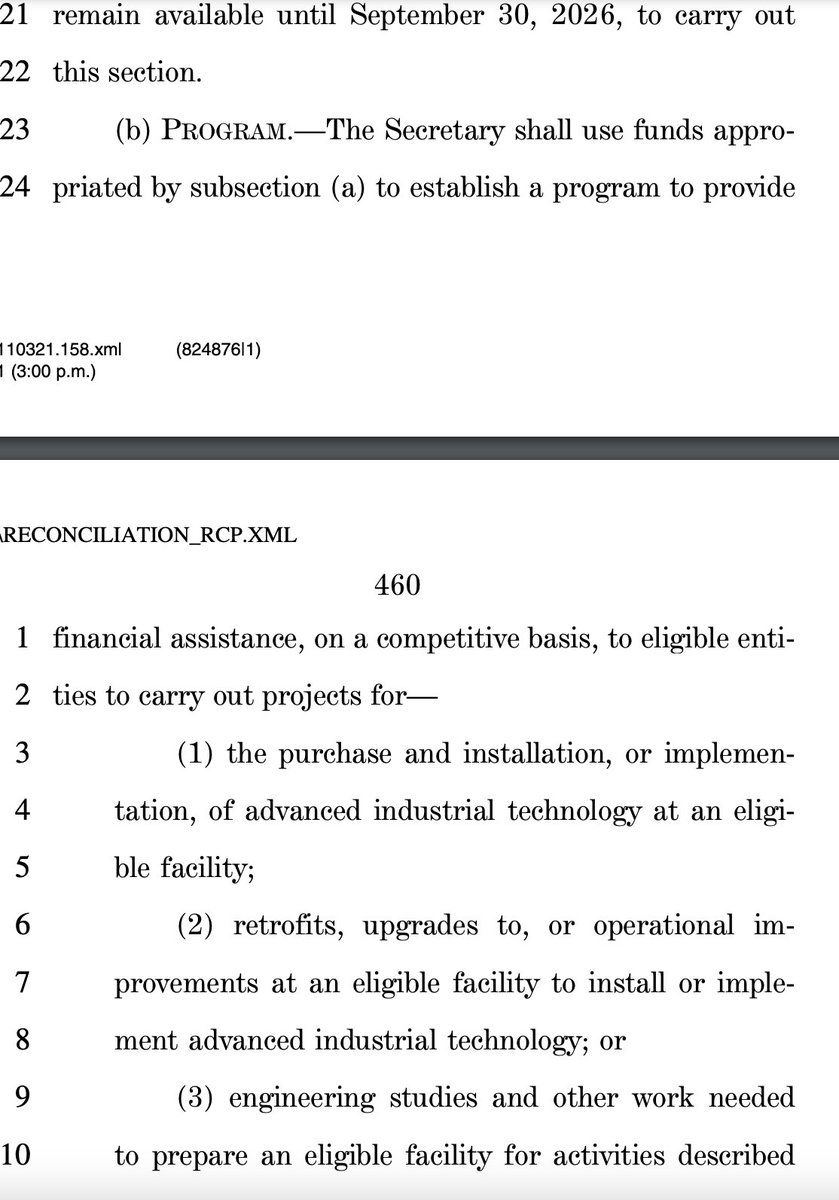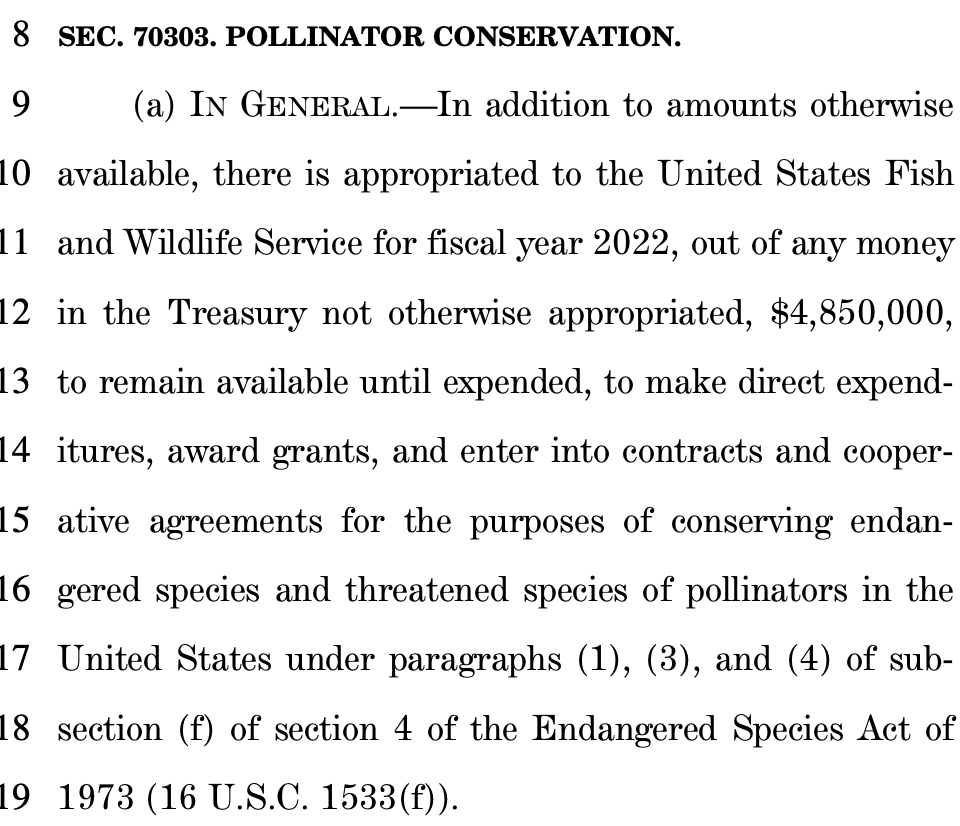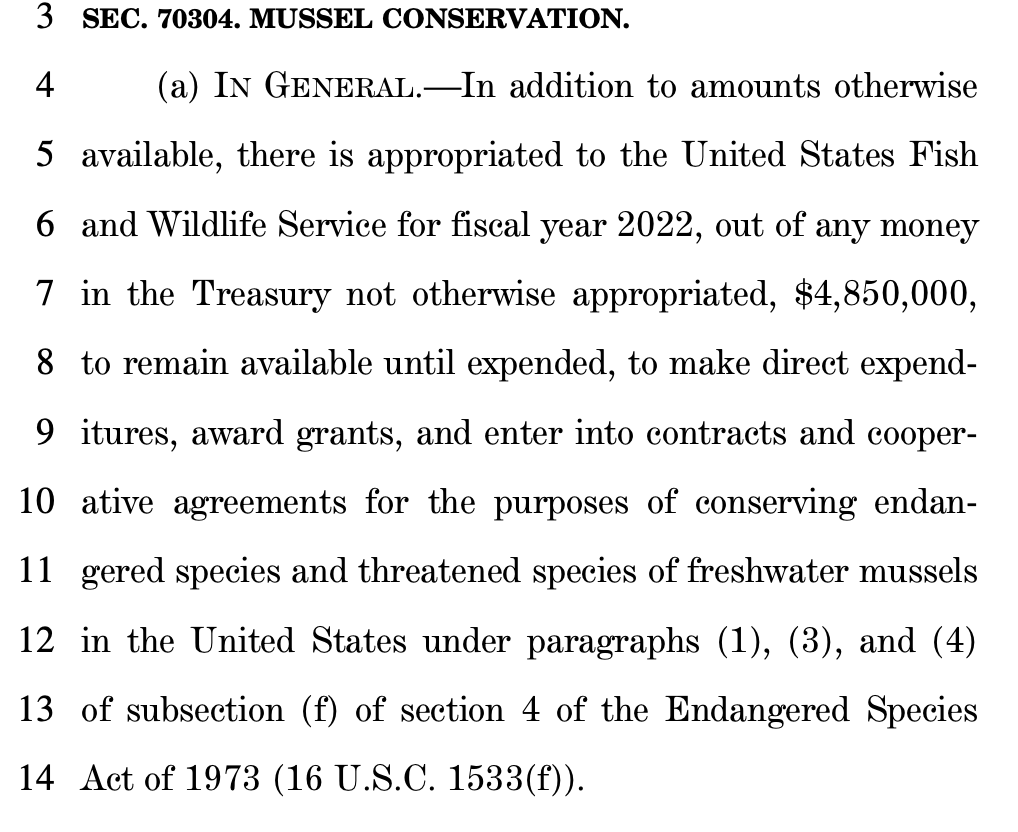It's past 5pm on a Friday, so I've cracked a beer and started reading the reconciliation bill. It starts with the U.S. Forest Service, and I already like this thing rules.house.gov/sites/democrat… 
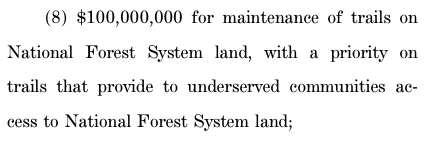
Expected stuff about child care, elder care, workforce development ... and I guess here's the climate conservation corps at $6.9b, lower than the $10b Biden asked for. grist.org/politics/aocs-… 

Couple billion for replacing super-polluting heavy-duty vehicles with cleaner ones would super-charge efforts to clean up ports in particular: afdc.energy.gov/laws/11568 

EPA gets $5 million to hold corporations accountable to their greenwashy climate action commitments: 

OK evening plans call. (I have a life!!) To be continued.
OK, got my coffee. Now that this thing's theoretically going to pass, time to keep reading. (Highlighting random interesting stuff, not the big ticket items that make the news.) Starting with $5b for loans to transition communities that depend on fossil fuel production: 
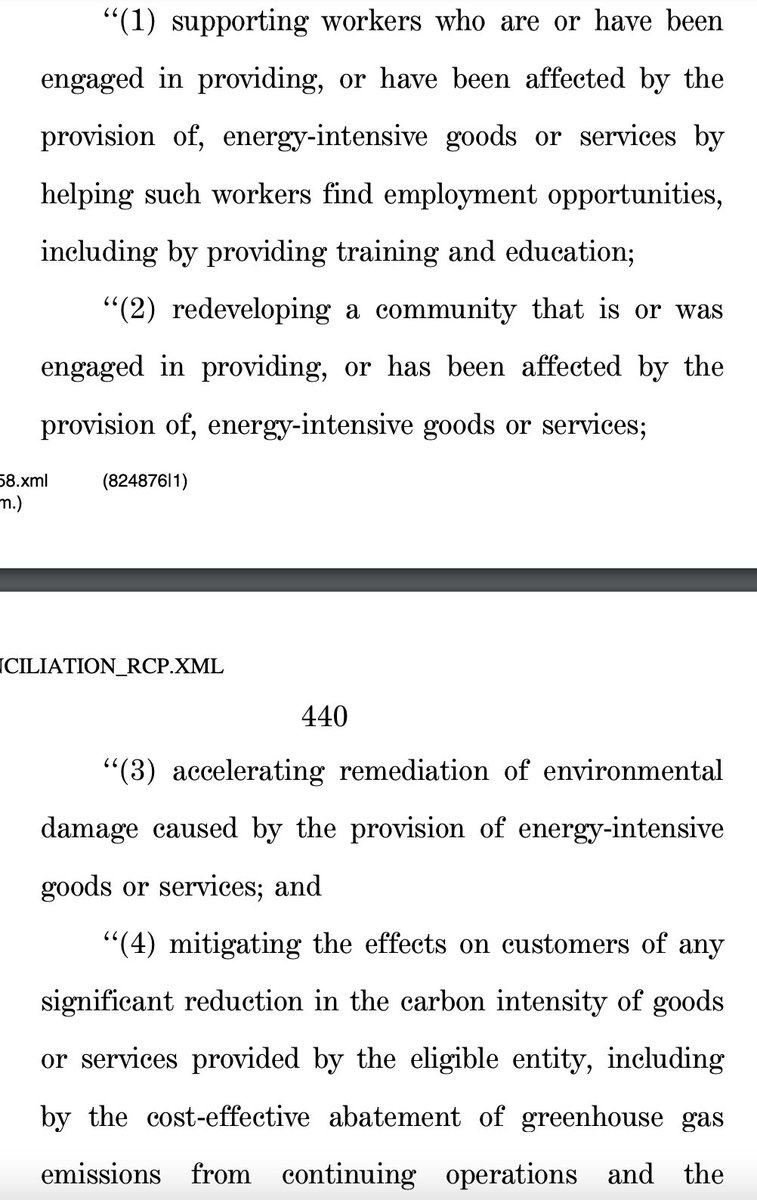
New transparency requirements for pharmacy benefit managers, which have all kinds of backroom deals with drug manufacturers: 

A mandate to study and regulate nurse staffing ratios in skilled nursing facilities (big priority of folks like @NationalNurses) 

@NationalNurses Preventing new moms from being cut off Medicaid for a year following a birth: 

@NationalNurses BIllions upon billions for public health infrastructure with a heavy emphasis on rural/underserved areas, including $2 billion for the national health service corps and $0.5b for rural nursing schools: 

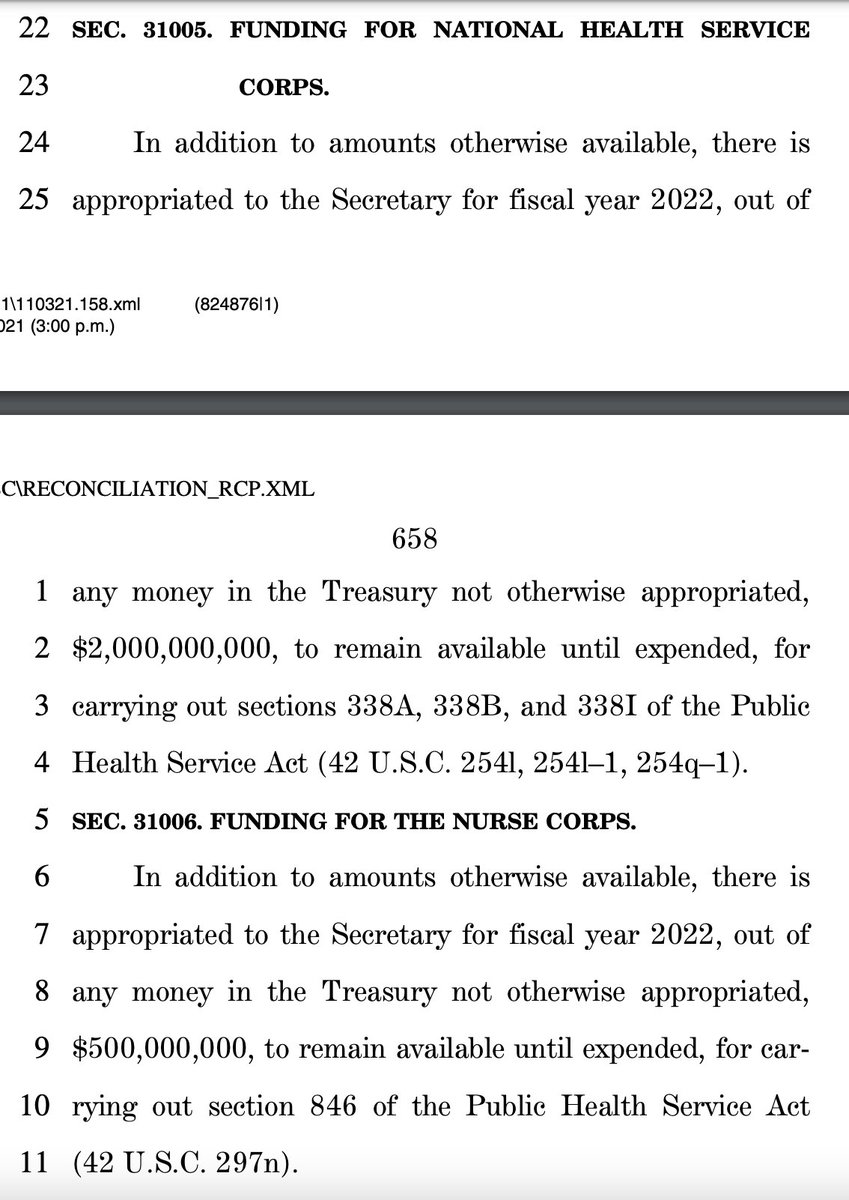

@NationalNurses $1.3b for beefing up pandemic response capacity -- stuff like the national strategic stockpile and domestic manufacturing of critical drugs/PPE/vaccine supples that were such a problem at the beginning of all this 



$50 million for doulas, along with hundreds of millions more to address maternal mortality, particularly in minority communities 

Lots of money for mental health and suicide prevention, including $2.5 billion to address community violence and trauma interventions 



You're worried about supply chains? Here's $5 billion for the Commerce Department to study and strengthen manufacturing supply chains 

OK this is a big ticket item, which is not what this thread is for, but ~$63 billion for public housing is a big deal -- just a bit off the $70 billion @CenterOnBudget recommended cbpp.org/research/housi… 
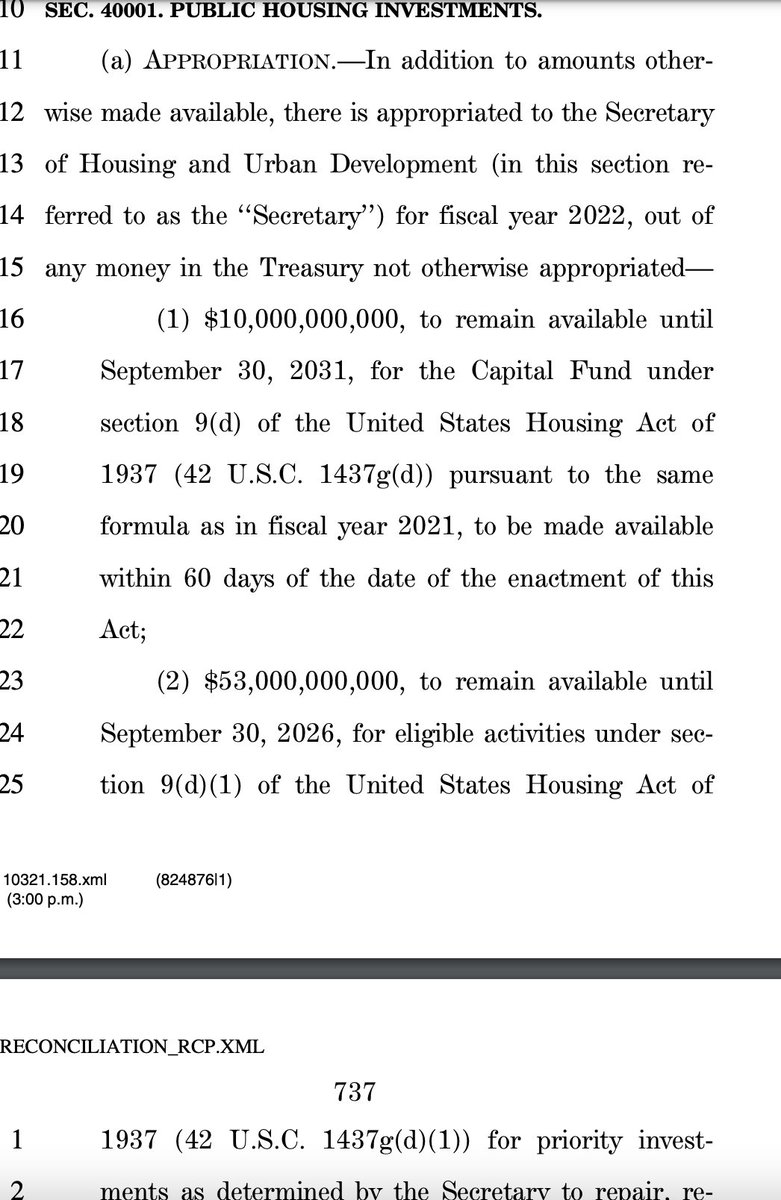
@CenterOnBudget $1.8 billion for climate resiliency/water/energy efficiency for multifamily buildings, and another $1.8 billion for rural rental housing: 



@CenterOnBudget Much more assorted housing stuff. Also grants for planning programs to increase housing supply, including better zoning (!!!) to reduce barriers to housing construction: 

@CenterOnBudget Some serious heft -- $540 million -- behind fair housing enforcement. Recalling that amazing @Newsday investigation that did what the federal government couldn't without this kind of funding. projects.newsday.com/long-island/re… 
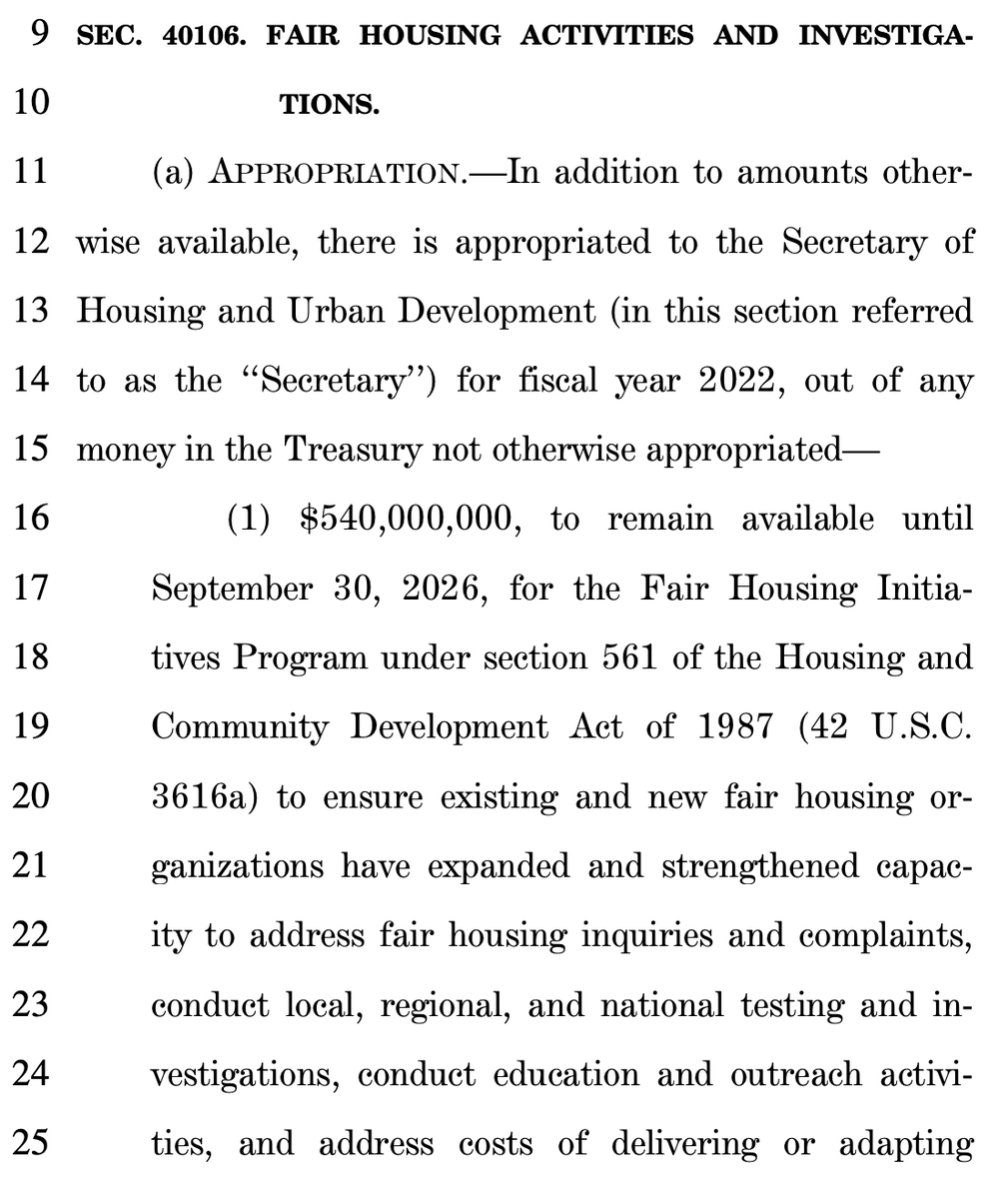
@CenterOnBudget @Newsday A $76 million small dollar mortgage demonstration program -- particularly important for financing homeownership in disinvested communities where homes appraise for too little to be worth the bank's time. 

@CenterOnBudget @Newsday !! $1.6 billion for the Minority Business Development Agency -- which as I wrote in February has for 50 years scraped by as a sad gesture towards the importance of democratizing entrepreneurship. propublica.org/article/the-pa… 





@CenterOnBudget @Newsday Lots of immigration provisions that I'll never understand as well as @DLind, including new fees for lots of different types of visas: 



The FTC and DOJ each get half a billion dollars for antitrust enforcement, and DOJ also gets half a billion for cracking down on tax evasion (which you'd think CBO would score as a revenue raiser!!) 


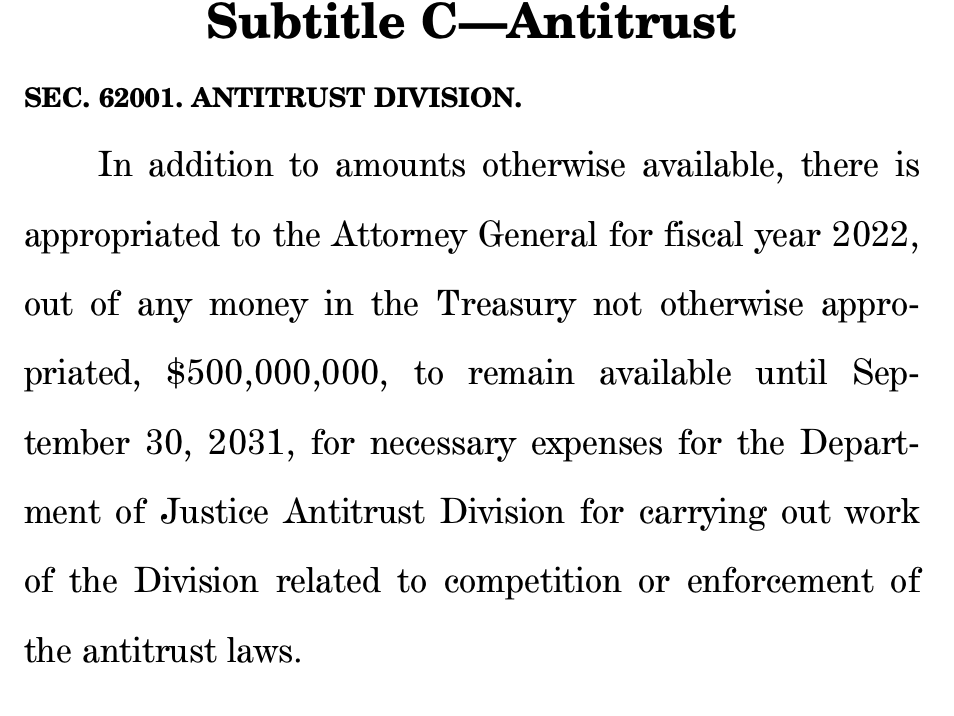
ALong with lots of climate resilience money for tribes, the Indian Health Services gets more than a billion dollars, after relentless coverage by the WSJ and others about problems caused in part by underfunding: wsj.com/news/collectio… 
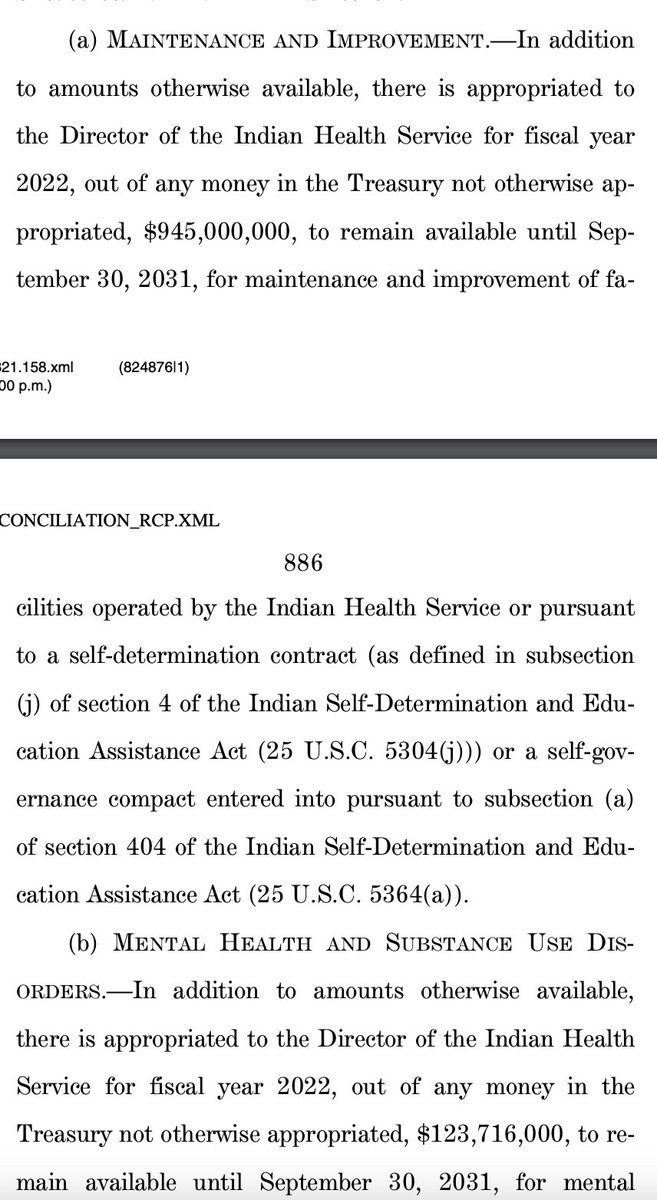
NOAA gets $6 billion for coastal restoration/resilience in the face of increasingly intense storms, and another $1 billion to bolster salmon populations 



Canceling oil leases in the Arctic National Wildlife REfuge and banning future oil leases on the Outer Continental Shelf, while opening it up to wind development. 

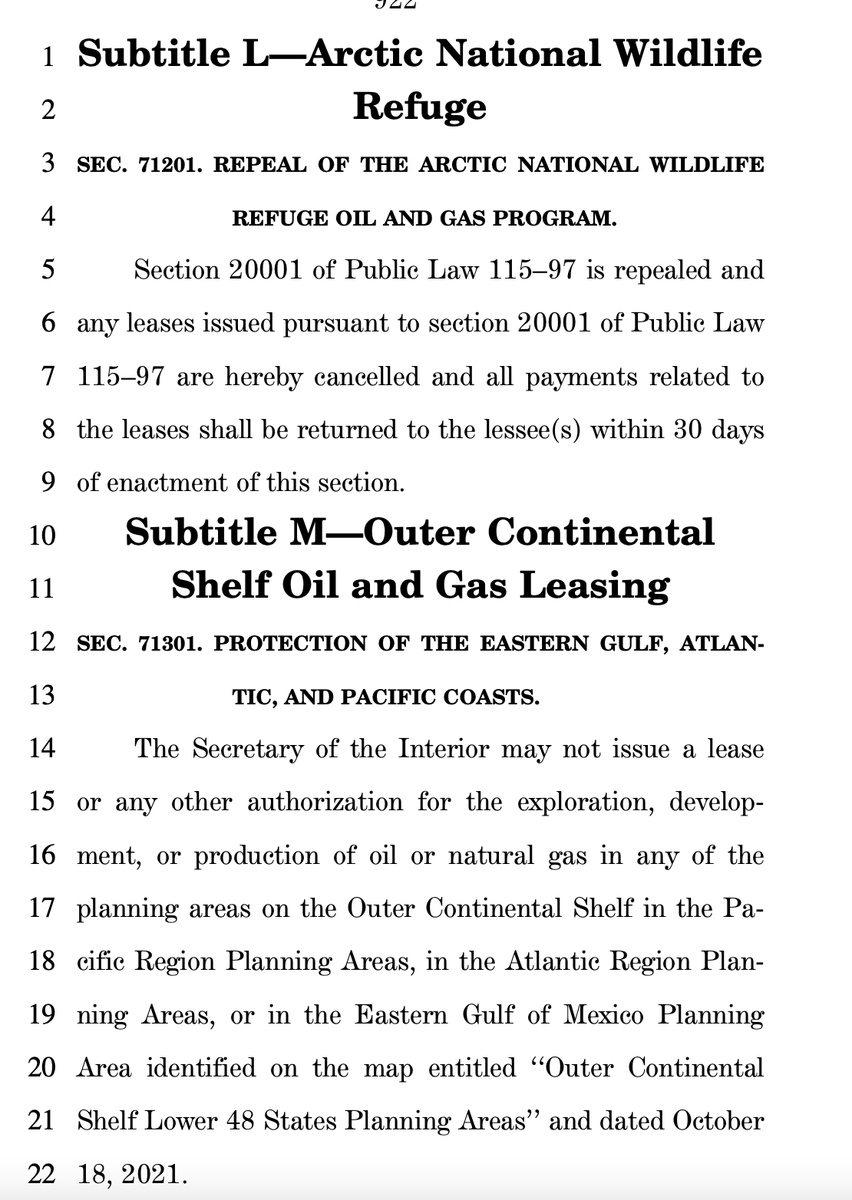

Lots of new fees on other oil and gas leases, the impact of which @MarkOlalde would understand way better than me 



@MarkOlalde $3B for the GSA and $2.6B for the USPS to buy zero-emissions vehicles. Last year I wrote about how the 2009 stimulus failed to put enough government procurement money behind electric vehicles to get a domestic battery manufacturing industry off the ground: propublica.org/article/to-und… 


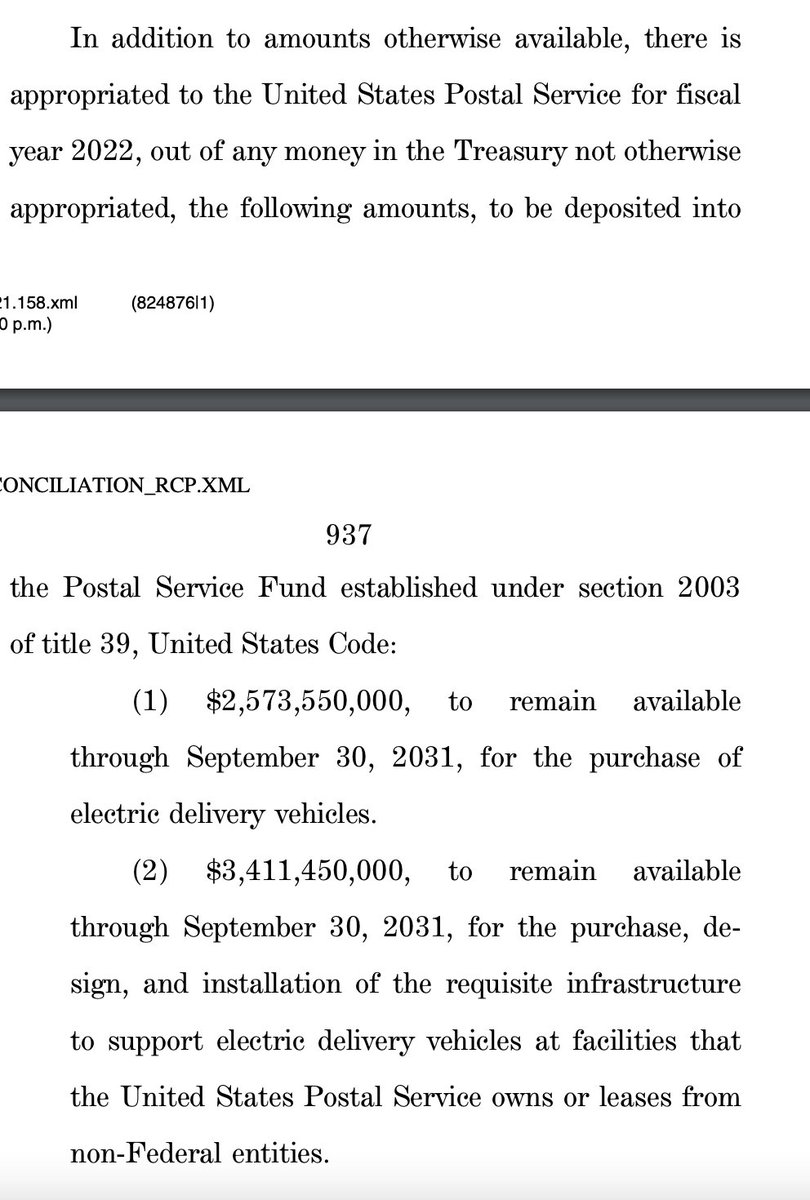
Bookmarking page 937 on a 2,135-page bill, going outside for a bit.
Back for a bit.
The Department of Energy gets a billion for advanced energy technology demonstration projects
The Department of Energy gets a billion for advanced energy technology demonstration projects

The EPA gets $100m for climate change-related air quality monitoring, NASA gets a total of $325 million for climate research including sustainable aviation and wildfire surveillance 

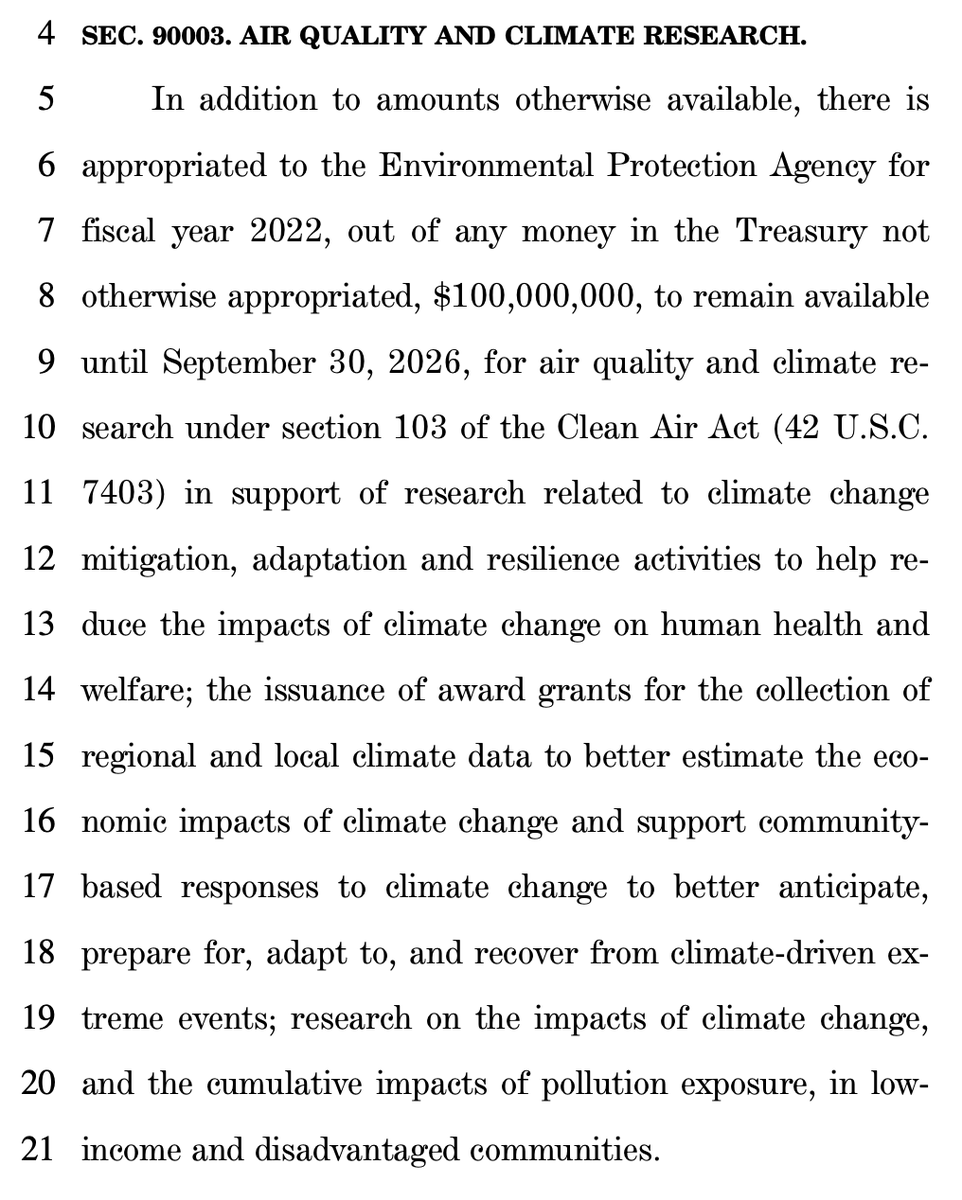

Along with hundreds of millions of dollars to NIST and NOAA for climate research, also $20m for climate change education and $139m for hurricane-forecasting aircraft (👀) 

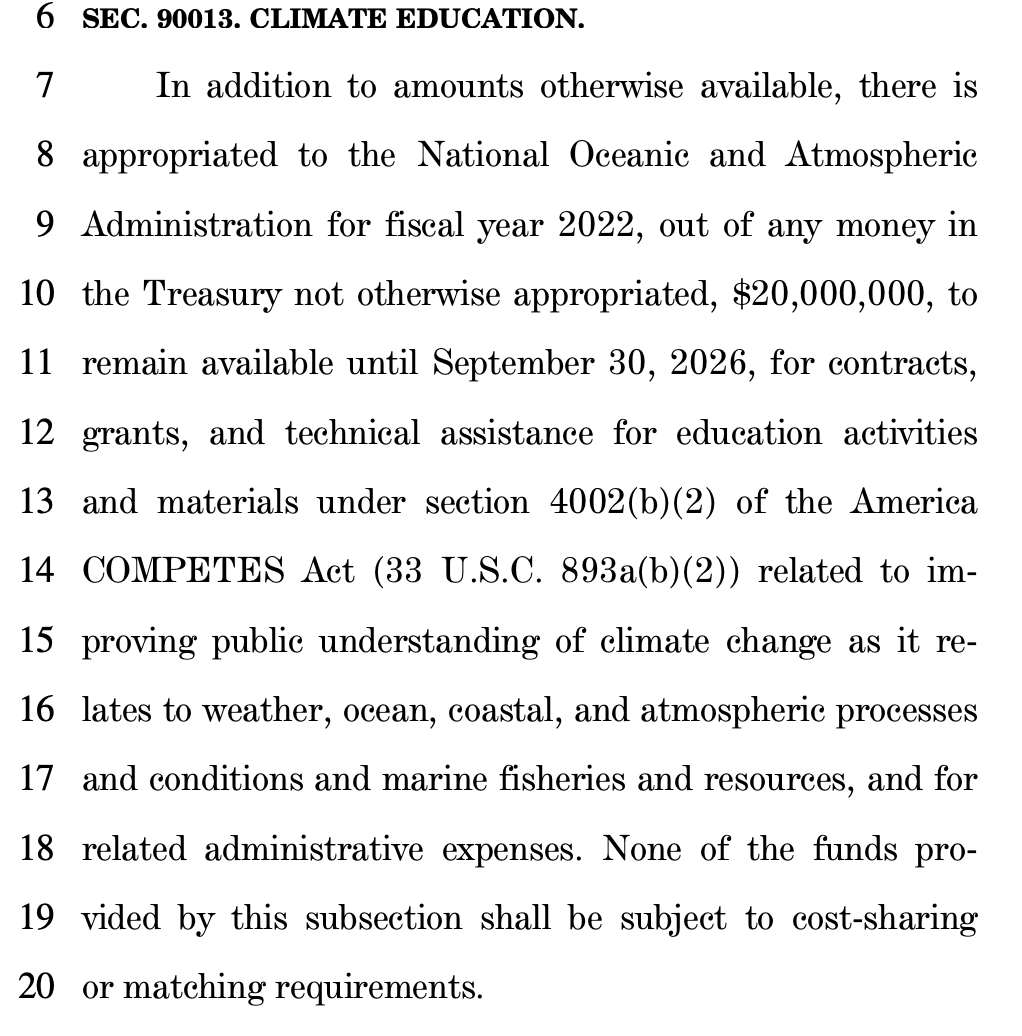

$500m for the National Science Foundation to upgrade core research infrastructure, along with billions more for research grants 

A billion for something called Uplift Incubators -- seems like a small business acceleration program for disadvantaged/underprivileged entrepreneur types 

Lots more support for small business lending and capital investment, including $225M for a new loan guarantee program for underserved markets 

!!! $100 million for the SBA to carry out a pilot program to make loans to cooperative businesses *without a personal guarantee,* which as I wrote earlier this year was a big barrier to participation for worker- and community-owned businesses. propublica.org/article/the-go… 

$9.75 billion for transit access for folks who live in low-income neighborhoods, including buses and light rail 


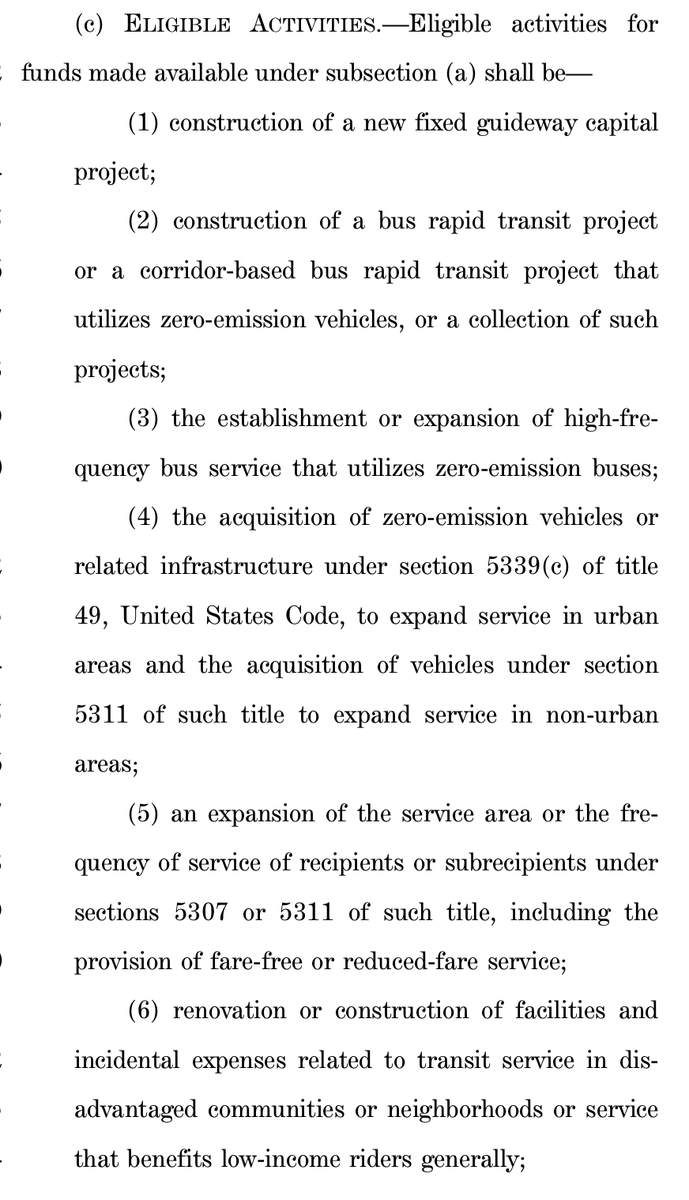
$4 billion for the Federal Highway Administration to make grants to state and local governments for carbon reduction projects (which hasn't been, like, top of mind for the biggest funder of roads in America) 



Oh my heart: $2.4 billion for walkability, complete streets, stormwater management, natural features to mitigate urban heat islands and air pollution, etc. 





$300m for sustainable aviation fuels, $500m for greening federal buildings, $650 for climate-proofing the Coast Guard, and $350m for one (1) Great Lakes Heavy Icebreaker 



The war on cars, in budget form. (Condition of $900m in funding for the incremental costs of using low-carbon materials in transportation projects) 

A new entitlement: Four weeks of leave for caregiving, with partial wage replacement by the government. 

A bunch of adjustments to Trade Adjustment Assistance making it more generous and flexible, for example with childcare allowances and coverage for public sector workers. 



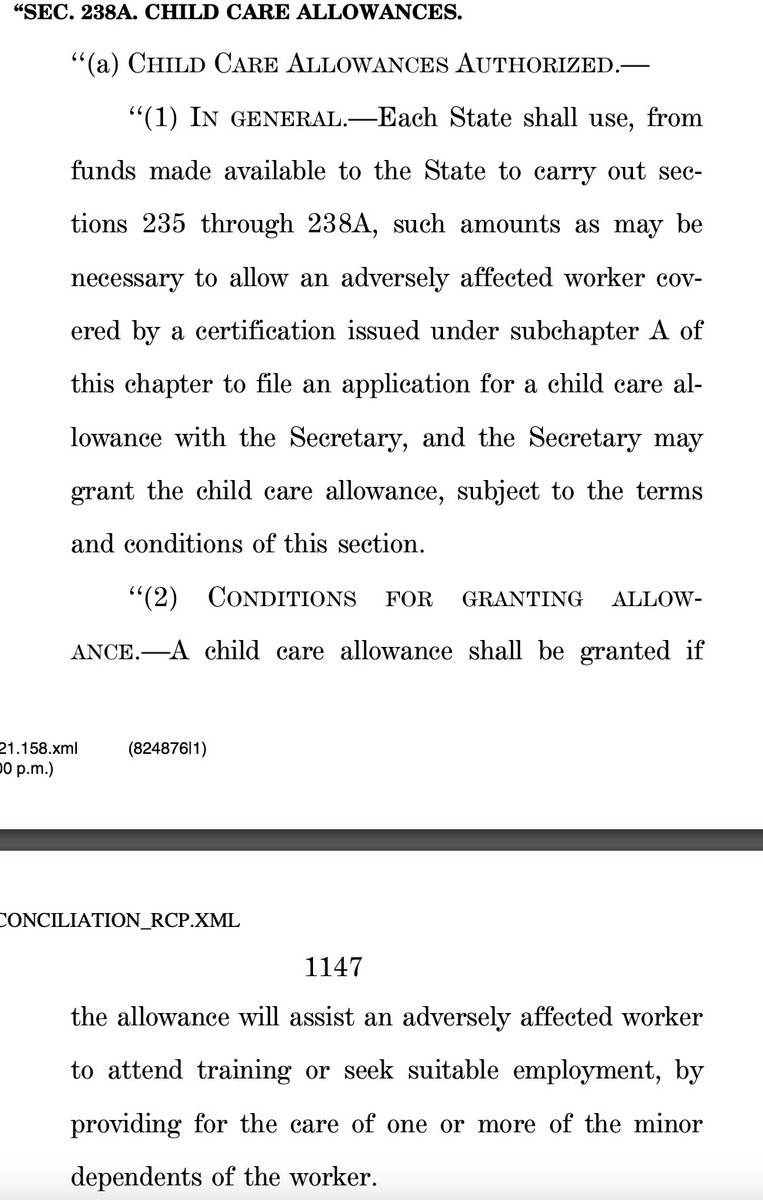

The creation of a whole new branch of trade adjustment assistance (which already also includes TAA for firms): TAA for Communities. Grants for places hit when jobs are offshored. 



People seem upset about this, thinking that it's $5B just for studies, but it's actually for studying AND doing things, as the original tweet said and as the rest of the bill section reads. 
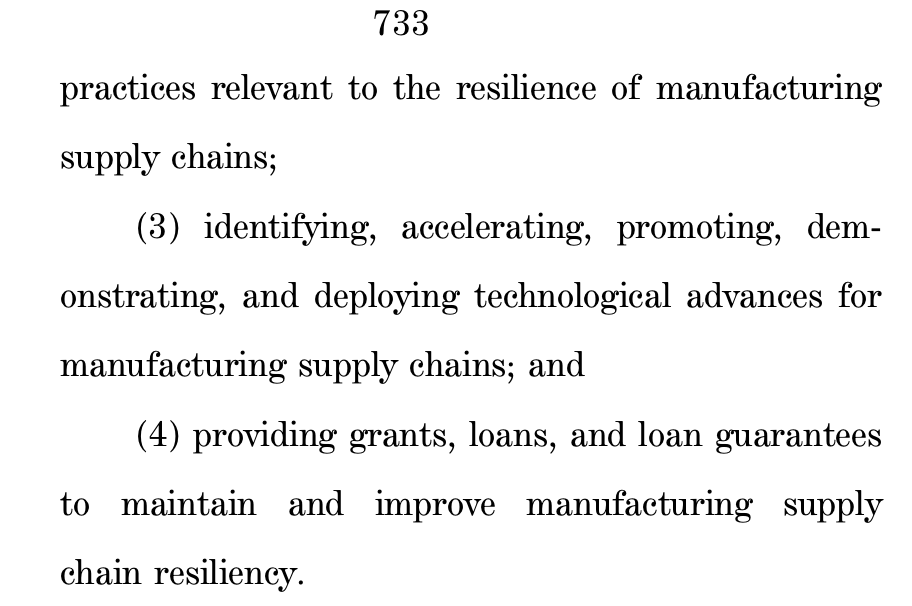
A new tax credit for rehabbing 1-4 family homes and selling them to low-moderate income buyers, as summarized here: neighborhoodhomesinvestmentact.org/proposal
Unclear how much it costs.
Unclear how much it costs.

Long section on renewing/extending/expanding/creating tax credits for renewable energy, sustainable fuels, electric vehicles, and energy efficient buildings, including zero-emissions nuclear and clean hydrogen. Also a 30% tax credit for the cost of wildfire mitigation. 


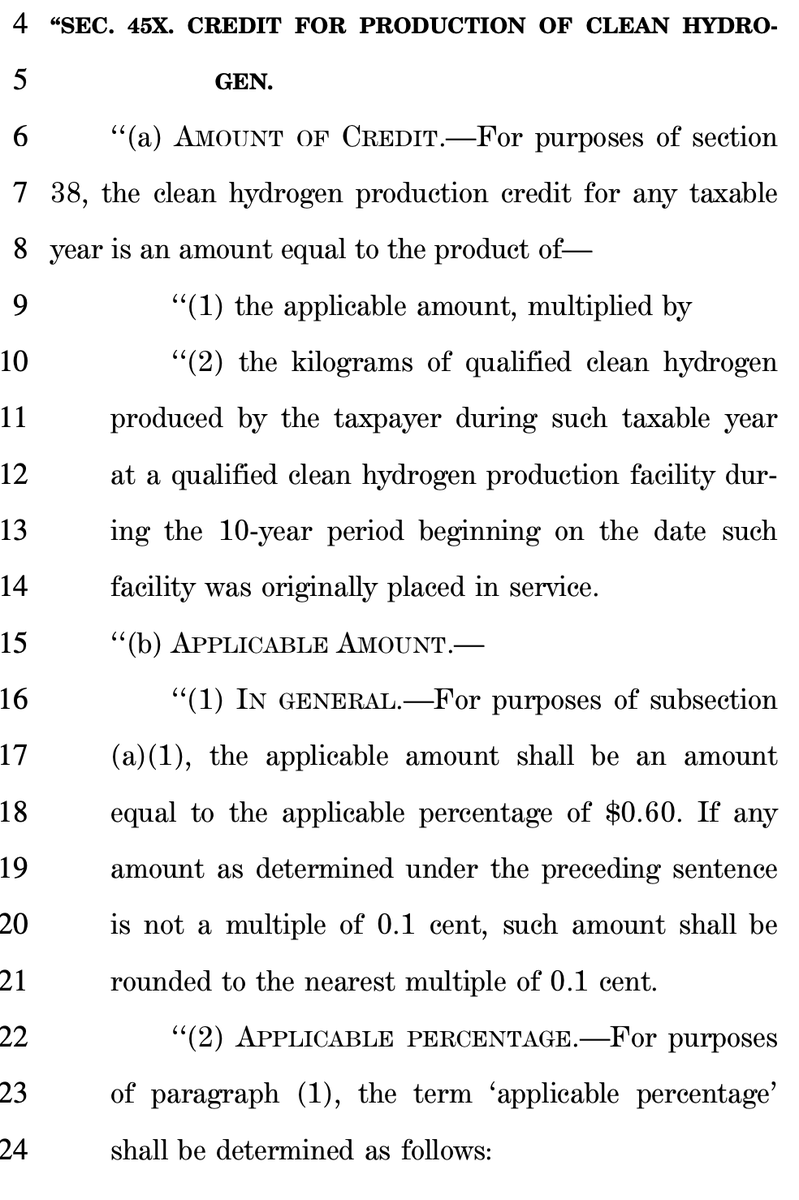


EV vehicle tax credits are (I believe) only for cars assembled in unionized U.S. plants, with batteries made in the U.S. (gonna hawk my battery story one more time) propublica.org/article/to-und…
Here's a higher-level overview of the tax credit landscape: velaw.com/insights/clean…
Here's a higher-level overview of the tax credit landscape: velaw.com/insights/clean…

Tax credits for bikes! (I feel like not many people are going to do the paperwork for this and a straight subsidy would be better, sigh) 



Extending the refundable Child Tax Credit, adding $4 billion for administration and to promote enrollment 


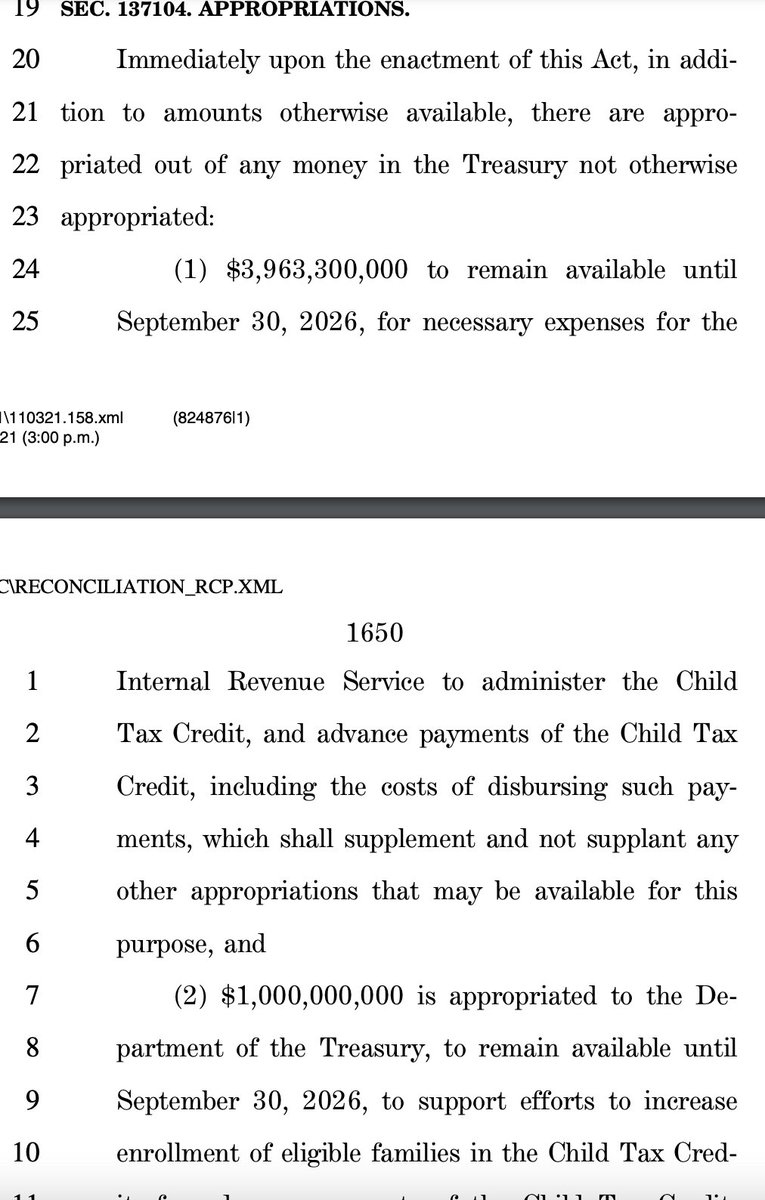
Getting into the corporate pay-fors, including a new 1% tax on stock buybacks. Also a little dig at REITs that own prisons. 


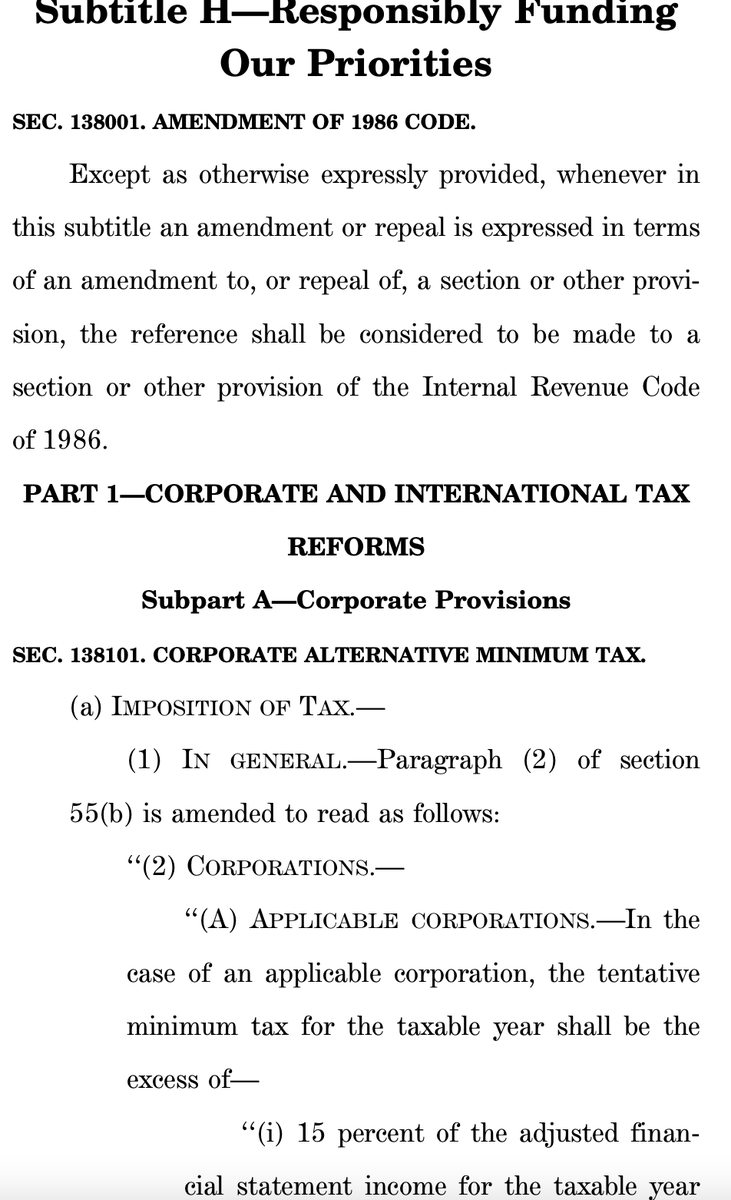
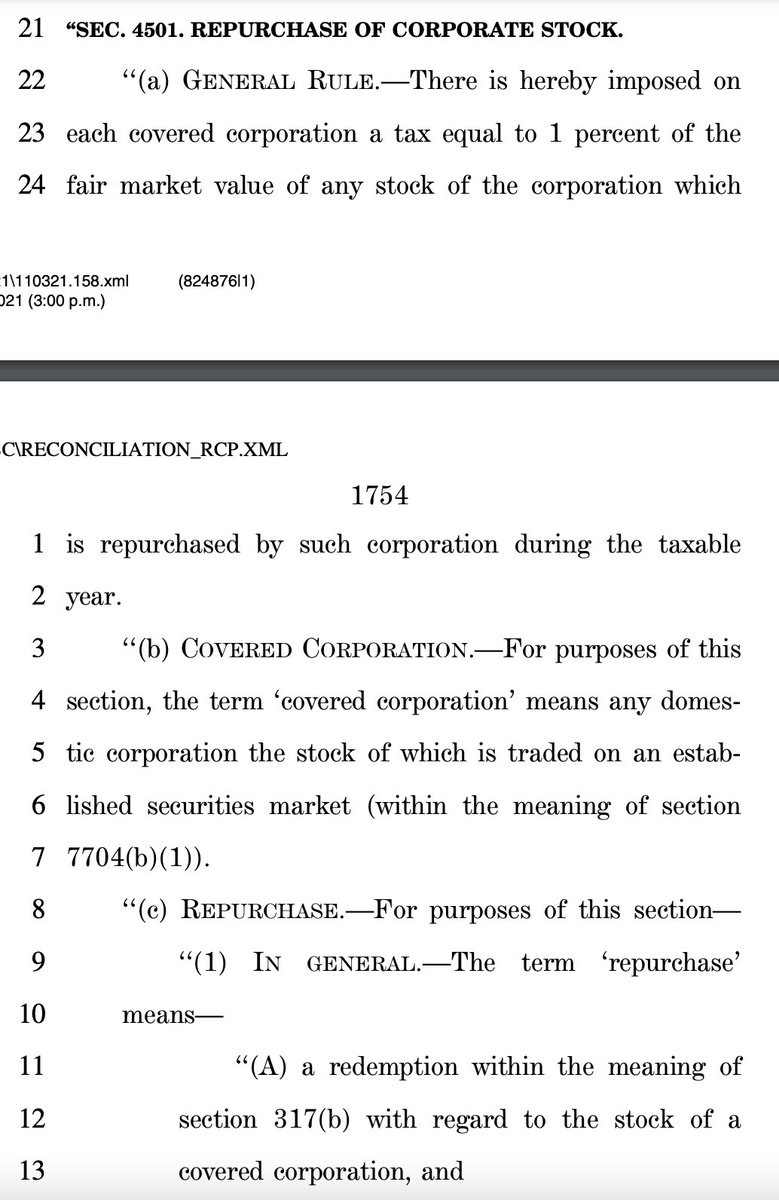

Getting into the individual tax pay-fors, including a surcharge on income above $10 million, and limitations on absurdly large Roth IRAs (as exposed by my colleagues @JustinElliott @SheInvestigates and @bandler_james ) propublica.org/article/the-ul… 





@JustinElliott @SheInvestigates @bandler_james About $80B for IRS taxpayer assistance and enforcement, and (!!!) $15million to study creating an IRS-run free e-file system, following @JustinElliott and @paulkiel's dogged investigation of how Intuit forced most of us to pay for tax-prep services: propublica.org/series/the-tur… 

@JustinElliott @SheInvestigates @bandler_james @paulkiel Tax deduction for union dues and a credit for the employment of local journalists ❤️ 


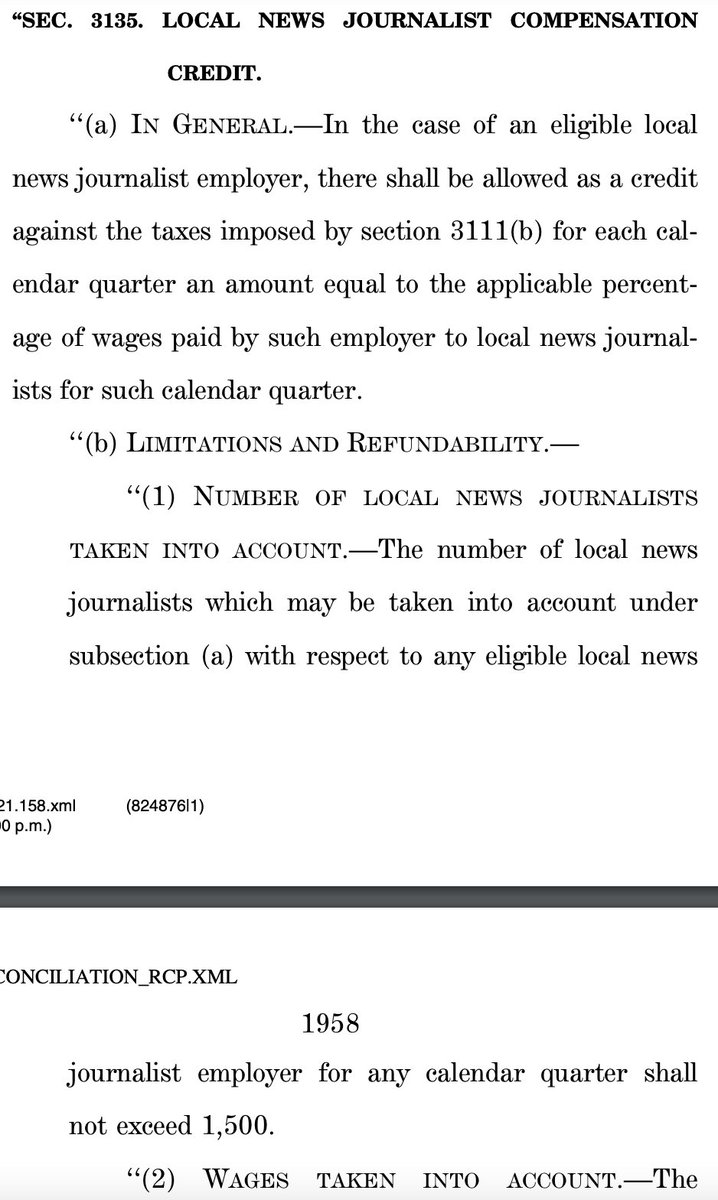
Welp, I'm done.
• • •
Missing some Tweet in this thread? You can try to
force a refresh






